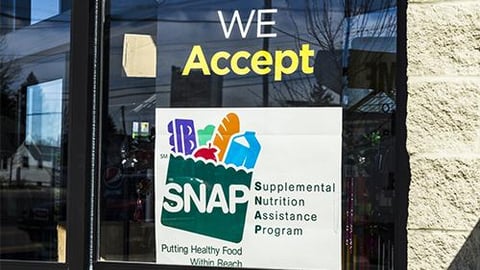FMI to Debut 1st Supply Chain Forum
Following President Joe Biden's Executive Order aimed at encouraging supply chain resilience, FMI – The Food Industry Association has revealed that it will host FMI’s first-ever Supply Chain Forum April 6-7 in an effort to learn about and engage on a range of critical and timely topics across the industry.
“A year into our collective COVID-19 response, most people now have a more informed view of our global supply chains, and know the time and materials involved in moving goods around the world and around our country,” said Marjorie DePuy, senior director, supply chain and sustainability for Arlington, Virginia-based FMI. “As we are wired to ask ourselves, how can we be better/stronger/more prepared next time, there is no better time to come together as an industry and look forward with specific ideas and opportunities to remove supply chain friction and improve our agility and resilience.”
Designed for mid-senior-level supply chain professionals, the online sessions will be brief and practical, building on a call to action to remove friction from the system while also building in additional resilience to meet future challenges head- on. The timely event will also include a series of Solutions Spotlights to help attendees hear directly from solution providers with new or updated resources, as well as Event Partner pages to interact directly with event partners.
Specific topics include:
- The data discipline required for better on-shelf availability.
- The ways that automation is disrupting and addressing labor challenges.
- A deep dive into the micro-fulfillment landscape.
“FMI members across the spectrum — upstream suppliers through the wholesaling and distribution and transportation networks to the retail community — need to come together with some shared principles of supply chain resilience,” said DePuy. “It is more complicated than just buying and holding more inventory. We are in a global network of supply, and each handoff — from ingredients onward — requires the exchange of accurate and complete data as well as safe handling and transport to the next link in the chain.”
For more information, visit the Supply Chain Forum.
FMI works with and on behalf of the entire food industry to advance a safer, healthier and more efficient consumer food supply chain. The organization brings together a wide range of members across the value chain — from retailers that sell to consumers, to producers that supply food and other products, as well as the wide variety of companies providing critical services — to amplify the collective work of the industry.






